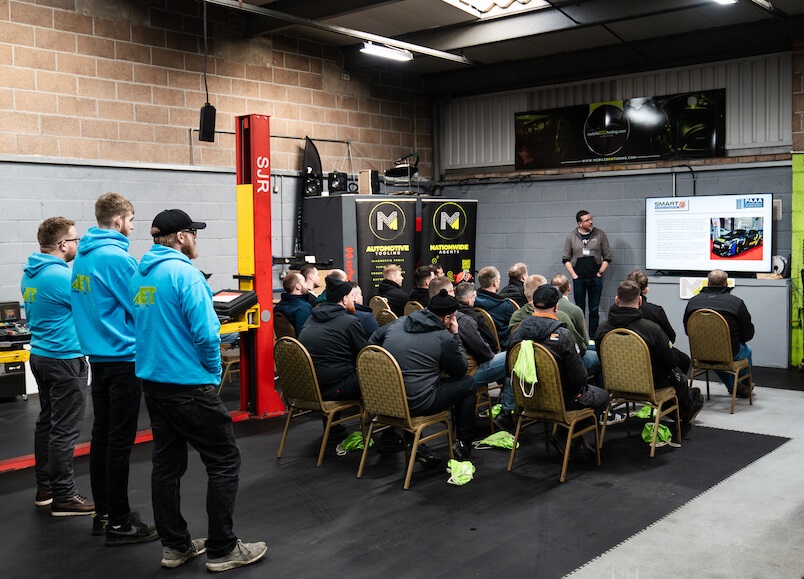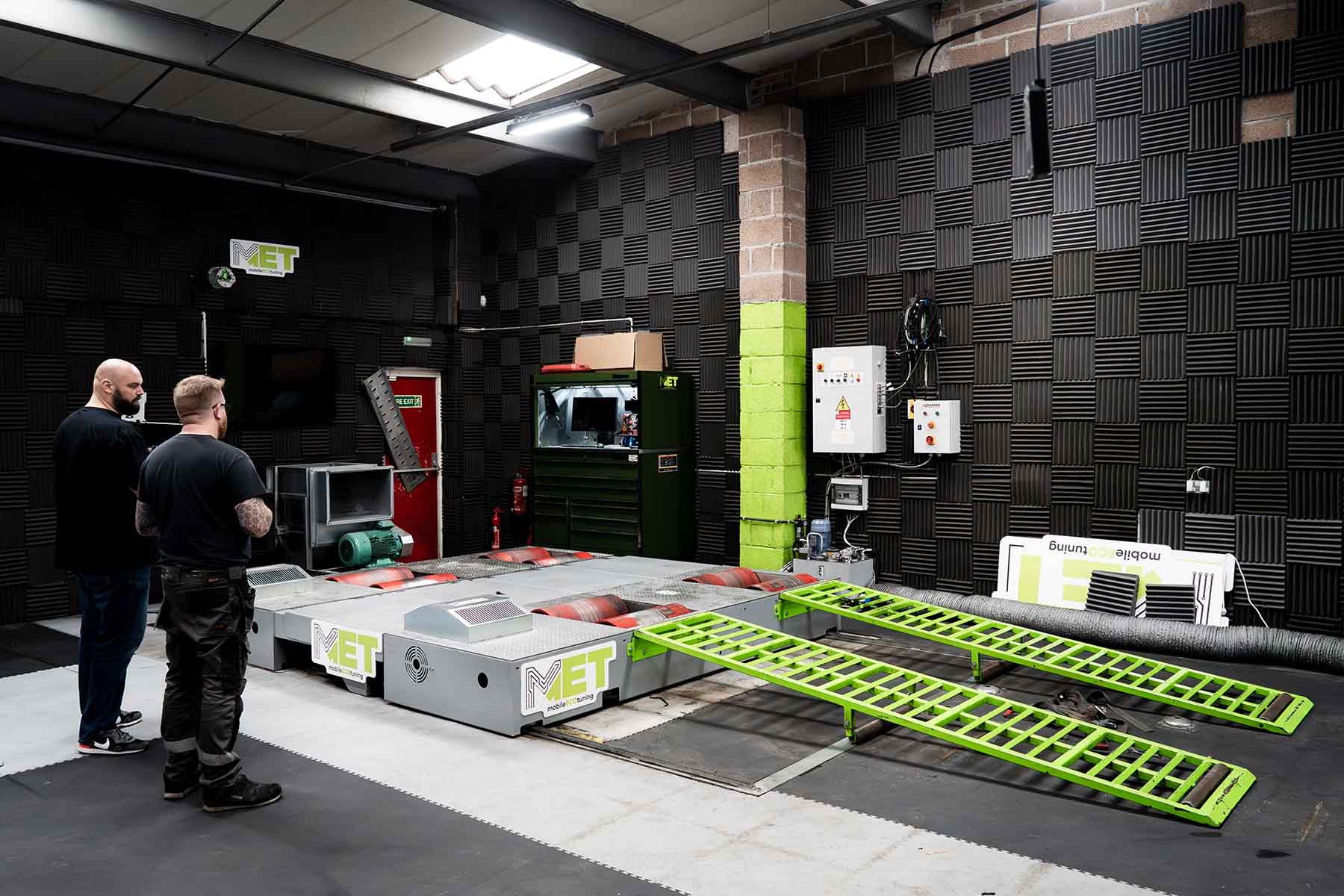Choosing the right ‘rolling road’
If you’re thinking about having your vehicle tested for maximum performance, or you’ve booked an ECU (Electronic Control Unit) remap that will tweak your car’s software for the best results, you’ll have most likely come across the concept of a chassis dynamometer – often referred to as a rolling road or a dyno.
A rolling road is, as the name suggests, a highly accurate machine designed to simulate different road conditions but under one roof – a fitness treadmill for cars, if you will. Rolling road or dyno tuning, as it’s also known, measures engine output, including horsepower, torque, and air-fuel mixture produced by the vehicle’s engine, which can then be tweaked by a technician to enhance the efficiency and performance of your car, turning it into an excellent ride.
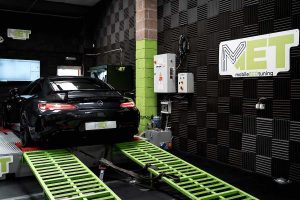
A dyno tune done professionally can also save you from expensive repairs going forward, as a properly diagnosed and tuned engine will not need to work as hard as an untuned vehicle. This helps to reduce wear and tear and extends your engine’s life. By using a dyno, you can simulate different driving conditions and scenarios, such as acceleration, deceleration, load, temperature, and altitude.
As you might expect, not all dynamometers are the same. Basically, there are two different types, engine dynos and chassis dynos. An engine dyno is connected directly to the engine, which means it must be out of the vehicle, whereas a chassis dyno takes measurements from the vehicle’s wheels. This is the most common type, and there are several different types of chassis dyno including 2-wheel drive, 4-wheel drive and hub dynos.
Here at Mobile Eco Tuning we use the Dimsport 4WD DF4FSHLS dyno. This state-of-the-art piece of equipment is one of the best dynos currently available, capable of supporting more than 1000bhp and providing accurate power and torque measurements.
It is a very versatile piece of kit, boasting a robust cradle roller design with a hydraulic linkage system. It can be run in either 2wd mode or 4wd mode, 4wd linked or non-linked. The use of eddy current brakes (theoretical braking power over 500 Hp for each axle) allows dynamic tests for a variety of performance-related issues, including vehicle speed, and the versatility of the eddy current brakes means that either the front eddy or rear eddy can be loaded separately, or both together. Our dyno also runs a 15kw front radial fan with direction diffusers 42 200 (m3/h) running 180kmh air speed.
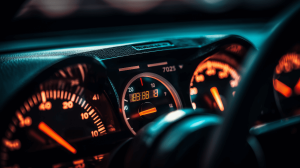
With the ability to connect both the front and rear rollers hydraulically, our dyno is one of only a few types that can safely and accurately be used with 4WD vehicles with modern electro-mechanical transmissions that alter the torque distribution between the front and rear axles. No matter what vehicle you have, it’ll go on our dyno.
We offer two different types of rolling road testing including a Power Run, comprising a full throttle power test to determine bhp and torque at the wheels and calculated flywheel figures. Where possible we will monitor boost and fuelling. We also offer a Full Dyno Session, which includes checks carried out to ignition operation, fuelling system, engine management fault codes and live data. We will also carry out a full-throttle power test to determine bhp and torque parameters at the wheels and calculate flywheel figures. Again, where possible we will monitor boost and fuelling.
And if you’re planning ECU remapping of your car’s engine, we offer the option of a dyno session to compare performance figures before and after our remap. Here, a dyno provides an accurate horsepower and torque reading and plays a crucial part in developing the revised ECU settings too. Using the in-house dyno, our developers can hold a vehicle at a steady speed or a constant force, or can simulate real-world driving conditions to ensure our ECU remaps deliver the ultimate driving experience.
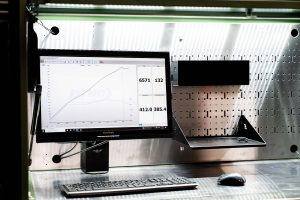
If you decide to book a rolling road session with us – and we really hope that you do! – it’s worth knowing a few things before you bring your vehicle in. Most importantly, your car needs to be in a good enough condition to dyno test, meaning that fluid levels are topped up with oil and water, the tyres are in good condition and correctly inflated, the cooling system is free from defects and that the exhaust is gas tight as we need to take samples from the tailpipe. Also, remember to fill the car up with fuel before arriving – this is a very comprehensive test that will burn a lot of juice!
For more information about dyno tuning and our rolling road, give us a shout by calling 01934 644427 or contacting us here. We’re always happy to talk through your requirements for your car, offering helpful and friendly advice wherever we can.
